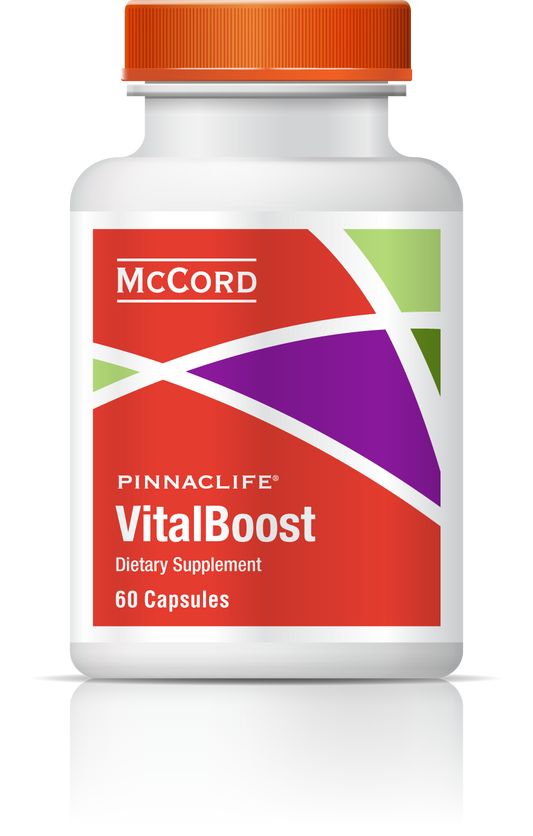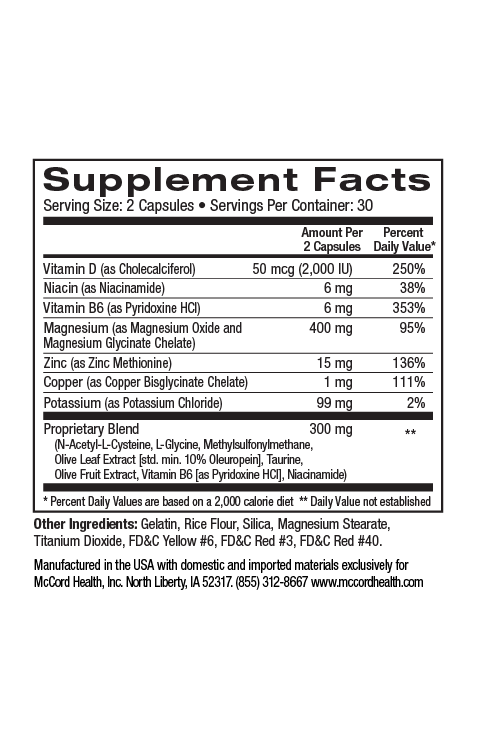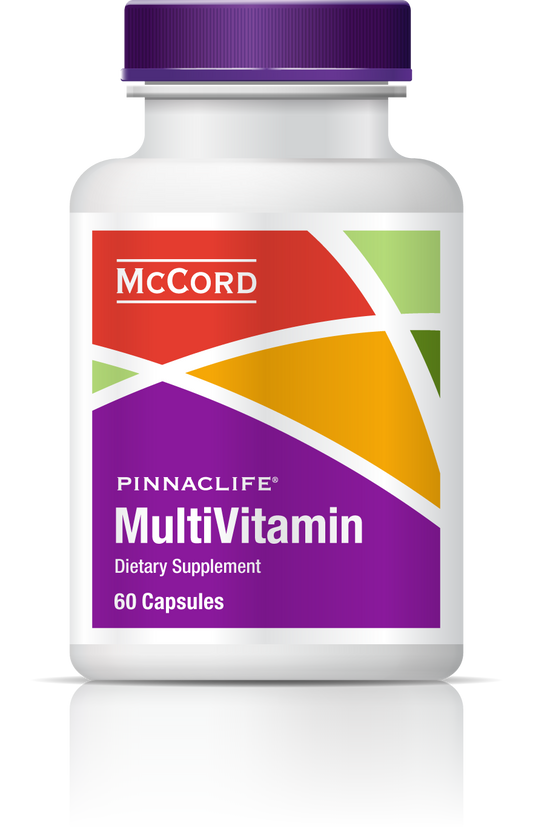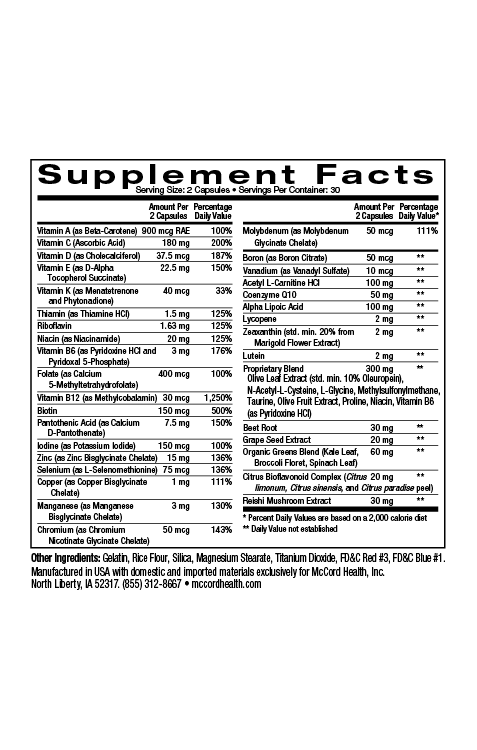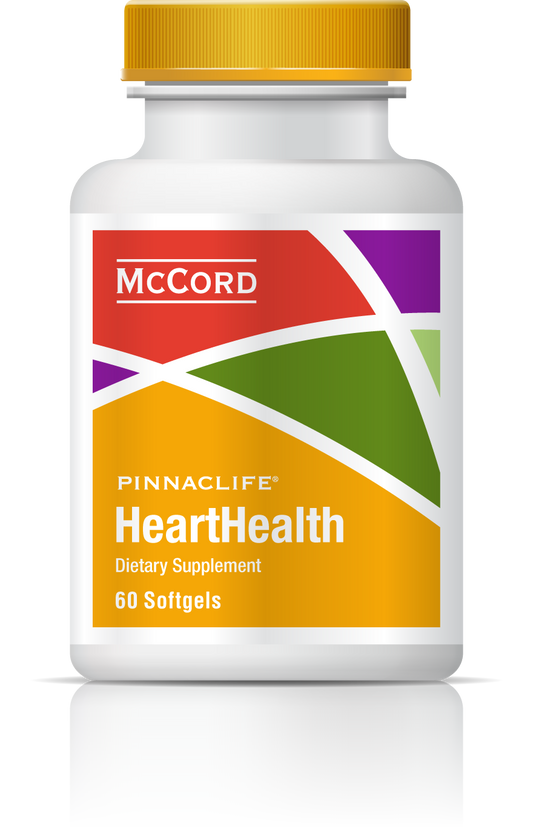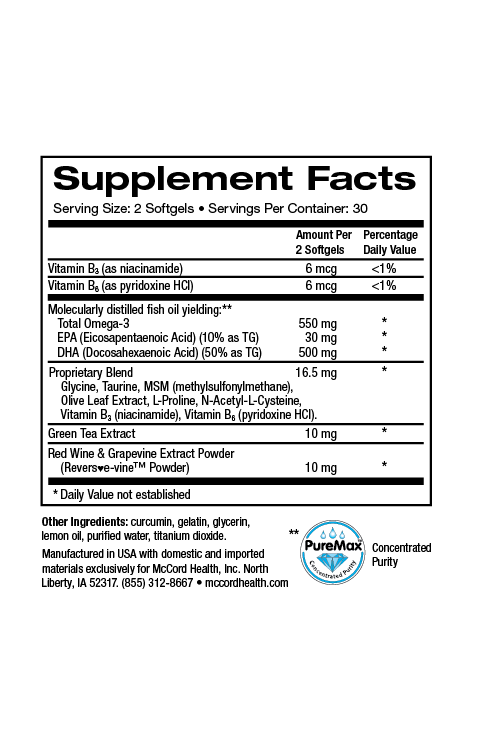Brain health and gut health are closely related. Your gut has it's own separate nervous system, often called the "second brain" or formally, the enteric nervous system. The health of the enteric nervous system tells us a lot about the health of the brain in your head.
- Brain health and gut health are closely related
- Your gut has it's own separate nervous system, often called the "second brain"
- The health of the second brain tells us a lot about the health of the brain in your head
- What's good for the brain in your gut is usually good for the brain in your head
- There are easy nutritional approaches to healing your gut and improving your brain health
Tell me More!
The Gut-Brain Connection
Did you know that the health of your brain is closely related to the health of your gut? In fact - the health status of your gut may actually provide doctors clues about issues occurring in your brain.
Scientists and doctors are increasingly looking at the ENS to learn more about brain health and neurodegenerative processes. What they are finding is that there is an extremely complex relationship between your intestinal bacteria, inflammation, your immune system, your brain, and the enteric nervous system (more on this below!).1,3
The “Second Brain”
Your body has a unique and specialized nervous system located in your digestive tract that is capable of functioning independently from the brain in your head.1 You may have at some point had a “gut feeling” about something, or felt “butterflies in your stomach” and some of this is due in part to the vast network of neurons and high concentrations of neurotransmitters like serotonin that are found throughout your gastrointestinal tract.
Your gastrointestinal tract contains somewhere between 200 – 600 million neurons, grouped in thousands of bundles referred to as plexuses.2 Scientists refer to this “second brain” as the enteric nervous system (ENS). The ENS and your brain communicate back and forth with each other, however the ENS is capable of functioning completely independently from the brain in your head.2
What's good for your gut is good for your brain
We now know that the health of the ENS is closely tied to the health of your brain and spine – called the central nervous system (CNS). Put another way, if your “second brain” is unhealthy, your actual brain is likely under distress as well. In fact, scientists have discovered that amyloid plaques similar to those found in the brain of people with Alzheimer’s disease also appear in the ENS and may serve as an important early warning sign for Alzheimer’s disease4
Taking actions that improve the intestinal microbiome and restore the health of the ENS also appear to have beneficial and protective effects in the CNS.
Your Body's Natural Security Systems
The intestines are closely tied into brain health because they perform and important security function, much like the blood-brain barrier (BBB) protects your brain from harmful compounds in your blood. The intestines are vital for regulating which components from the foods and drinks you consume are absorbed into the blood stream and possibly into your brain much like a filter. When the intestines are inflamed or damaged, it creates a break in this security system allowing for the absorption of potentially toxic compounds and even microorganisms like bacteria and viruses to bypass the security filter and enter directly into the blood stream and ENS. Once these compounds have entered your blood stream and ENS, they are one step closer to impacting the health of other organs including your brain.
Taking Care of the Second Brain
There are a couple of very easy steps you can take to help restore and maintain the health of your gut and second brain. As you might guess, the health of your intestines is largely dependent on dietary factors, so many of the steps towards better gut health involve dietary modification.
Feed Your Intestinal Microbiome:
The first line of defense for your intestines is provided by the intestinal bacteria that are collectively called the intestinal microbiome. Increasing your daily intake of fresh fruits and vegetables that are rich in fiber can help promote a healthy intestinal microbiome. Studies have shown that altering your diet can shift your intestinal microbiome in as little as 24 hours.6 This is great news because it means that you can quickly experience the benefits from incorporating these simple dietary changes.
Supplementing your diet with Olivamine® DigestiveHealth prebiotic fiber is another easy way to boost your daily fiber intake and support the healthy intestinal bacteria that are known to promote brain health.5
Restore the mucosal barrier:
Imbalance of the intestinal microbiome contributes to significant inflammation and cause breaks in the barrier created by the mucosal cells that line the intestines. The inflammation and damaged mucosa allows unwanted compounds to enter the blood stream, leading to exposure throughout the entire body. Healing the mucosa and reducing the inflammatory processes is vital to restoring the health of your second brain.
One of the key features of the patented Olivamine® formula found in all McCord Research Olivamine® Supplements is that it has been shown to have postitive benefits in wound care.7,8 This means that when you use Olivamine®, you provide those mucosal cells of the intestines with the nutrients they need to repair themselves and help restore the barrier function of the intestines.
Provide Nourishment:
There are a wide variety of naturally occurring nutrients and antioxidants that have demonstrated benefits in protecting brain and nerve cells, including those found in the ENS. Some of the most well researched compounds with the best supporting evidence in brain health come from foods you are probably familiar with including olive leaf extract (hydroxytyrosol), broccoli (sulforaphane), turmeric (curcumin), grapes (resveratrol), and green tea (EGCG).9–15 Some additional nutrients known to be important for brain health include N-acetyl-l-cysteine (NAC), magnesium, L-taurine, omega-3 fatty acids (fish oil), and vitamin B-12.16–22 Providing your body with enough of these key nutrients is important to restoring and maintaining healthy nerves and brain cells. All of these antioxidants and nutrients are included throughout the Pinnaclife supplement line.
You will often hear us say that good health begins in the gut, and this is especially true when it comes to the health of your brain. When our gut tells us that it isn’t feeling very good, we need to listen and take the necessary steps to restore the microbiome, restore the mucosal barrier, and provide nourishment. You can start today by combining a healthy diet along with Olivamine® DigestiveHealth, TotalHealth MultiVitamin, and ImmuneHealth supplements.
References
- Mayer EA. Gut feelings: the emerging biology of gut-brain communication. Nat Rev Neurosci. 2011;12(8):453–66
- Furness JB, Callaghan BP, Rivera LR, Cho H-J. The enteric nervous system and gastrointestinal innervation: integrated local and central control. Adv Exp Med Biol. 2014;817:39–71.
- Shoemark DK, Allen SJ. The Microbiome and Disease: Reviewing the Links between the Oral Microbiome, Aging, and Alzheimer’s Disease. J Alzheimers Dis. 2014;43:725–738.
- Hill JM, Bhattacharjee S, Pogue AI, Lukiw WJ. The gastrointestinal tract microbiome and potential link to Alzheimer’s disease. Front Neurol. 2014;5(April):43.
- Fastinger ND, Karr-Lilienthal LK, Spears JK, et al. A Novel Resistant Maltodextrin Alters Gastrointestinal Tolerance Factors, Fecal Characteristics, and Fecal Microbiota in Healthy Adult Humans. J Am Coll Nutr. 2008;27(2):356–366.
- David LA, Maurice CF, Carmody RN, et al. Diet rapidly and reproducibly alters the human gut microbiome. Nature. 2014;505(7484):559–63.
- McCord DE, Karagiannis T. Hydroxytyrosol and Oleuropein compositions for induction of DNA damage, cell death and inhibition of LSD1. 2015:95.
- Kumar, Maneesh G., Amanda Kalen, Monali Goswami, Garry Beuttner, Prabhat Goswami ES. MnSOD activity regulates the hydroxytyrosol-induced protection of chronological lifespan. 2010.
- González-Correa JA, Navas MD, Lopez-Villodres JA, Trujillo M, Espartero JL, De La Cruz JP. Neuroprotective effect of hydroxytyrosol and hydroxytyrosol acetate in rat brain slices subjected to hypoxia-reoxygenation. Neurosci Lett. 2008;446(2-3):143–6.
- Hashmi MA, Khan A, Hanif M, Farooq U, Perveen S. Traditional Uses, Phytochemistry, and Pharmacology of Olea europaea (Olive). Evid Based Complement Alternat Med. 2015;2015:541591.
- Sharangi AB. Medicinal and therapeutic potentialities of tea (Camellia sinensis L.) – A review. Food Res Int. 2009;42(5-6):529–535.
- Sun AY, Wang Q, Simonyi A, Sun GY. Resveratrol as a therapeutic agent for neurodegenerative diseases. Mol Neurobiol. 2010;41(2-3):375–83.
- Cole GM, Teter B, Frautschy SA. Neuroprotective Effects of Curcumin. Adv Exp Med Biol. 2007;595:197–212.
- Scapagnini G, Vasto S, Sonya V, et al. Modulation of Nrf2/ARE pathway by food polyphenols: a nutritional neuroprotective strategy for cognitive and neurodegenerative disorders. Mol Neurobiol. 2011;44(2):192–201.
- Tarozzi A, Angeloni C, Malaguti M, Morroni F, Hrelia S, Hrelia P. Sulforaphane as a potential protective phytochemical against neurodegenerative diseases. Oxid Med Cell Longev. 2013:1–10.
- Townsend DM, Tew KD, Tapiero H. The importance of glutathione in human disease. Biomed Pharmacother. 2003;57:145–155.
- Adair JC, Knoefel JE, Morgan N. Controlled trial of N-acetylcysteine for patients with probable Alzheimer’s disease. Neurology. 2001;57(8):1515–1517.
- El Idrissi A, Shen CH, L’amoreaux WJ. Neuroprotective role of taurine during aging. Amino Acids. 2013;45(4):735–50. doi:10.1007/s00726-013-1544-7.
- Durlach J. Magnesium depletion and pathogenesis of Alzheimer’s disease by Jean Durlach. Magnes Res. 1990;3(3):217–218.
- Youdim K a, Martin a, Joseph J a. Essential fatty acids and the brain: possible health implications. Int J Dev Neurosci. 2000;18(4-5):383–99.
- Eussen SJPM, Groot LCPGM De, Clarke R. Oral Cyanocobalamin Supplementation in Older People With Vitamin B 12 Deficiency. Arch Intern Med. 2005;165:1167–1172.
- Moore EM, Ames D, Mander AG, et al. Among vitamin B12 deficient older people, high folate levels are associated with worse cognitive function: combined data from three cohorts. J Alzheimers Dis. 2014;39(3):661–8.
Disclaimer: These statements have not been reviewed by the FDA. These products are dietary supplements and are not intended to treat, cure, or prevent any disease. The decision to use these products should be discussed with a trusted healthcare provider. The authors and the publisher of this work have made every effort to use sources believed to be reliable to provide information that is accurate and compatible with the standards generally accepted at the time of publication. The authors and the publisher shall not be liable for any special, consequential, or exemplary damages resulting, in whole or in part, from the readers’ use of, or reliance on, the information contained in this article. The publisher has no responsibility for the persistence or accuracy of URLs for external or third party Internet websites referred to in this publication and does not guarantee that any content on such websites is, or will remain, accurate or appropriate.

